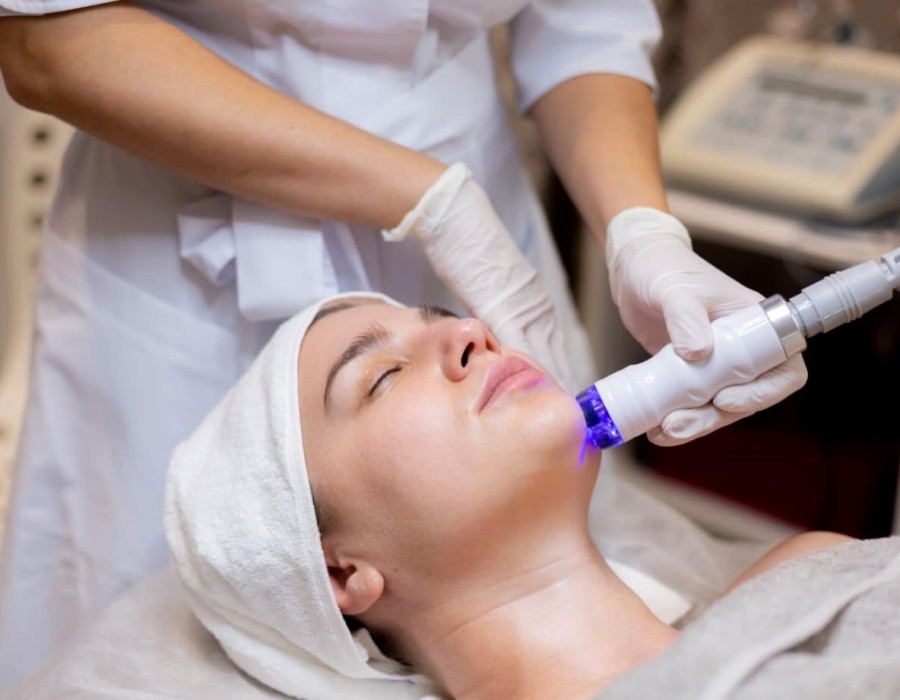In recent years, laser skincare has emerged as a revolutionary solution in the world of beauty and dermatology. From addressing acne scars to reducing pigmentation and fine lines, laser treatments offer visible, long-lasting results. However, for those with sensitive skin, the decision to undergo laser therapy often comes with hesitation and a list of valid concerns. Questions about redness, irritation, or long-term damage linger. Is laser skincare truly safe for sensitive skin types? The answer lies in understanding the nuances of laser technology and how it interacts with delicate skin. Particularly in locations that offer advanced cosmetic services, such as Laser Skincare Treatments in Dubai, sensitive skin clients are discovering ways to enjoy these procedures safely and effectively.
Understanding Sensitive Skin
Sensitive skin isn’t a one-size-fits-all condition. It varies widely between individuals and can manifest as redness, stinging, dryness, or inflammation when exposed to triggers like heat, harsh products, or environmental changes. These symptoms often make individuals wary of trying high-tech treatments like laser skincare. But it’s essential to recognize that “sensitive skin” isn’t a medical diagnosis—rather, it’s a subjective skin type that can still benefit from laser procedures with the right approach.
How Laser Skincare Works
Laser skincare works by using concentrated beams of light to target specific skin concerns. There are two main categories:
- Ablative lasers – These remove the outer layer of the skin and are generally more intense. They’re used for deeper scars and wrinkles.
- Non-ablative lasers – These penetrate the skin without removing any layers and are often recommended for more delicate or sensitive skin.
Modern laser technology has evolved significantly, and many devices come equipped with customizable settings that adjust intensity, wavelength, and cooling to suit different skin types, including sensitive skin.
The Safety of Laser Treatments for Sensitive Skin
The good news is that laser skincare can be safe for sensitive skin—when performed with care and precision. The key lies in selecting the right type of laser, prepping the skin properly, and following a gentle aftercare regimen.
1. Choosing the Right Laser Type:
Non-ablative lasers are generally better suited for sensitive skin because they’re less invasive. Treatments such as intense pulsed light (IPL), fractional lasers, or gentle resurfacing lasers can help treat pigmentation, redness, and uneven skin tone without excessive irritation.
2. Customized Treatment Plans:
Each skin is unique. A professional evaluation helps determine the best laser and intensity level. For sensitive skin, lower settings are often used initially to monitor how the skin reacts before increasing intensity in future sessions.
3. Cooling Systems and Numbing Agents:
Advanced laser machines now feature built-in cooling systems that protect the skin from heat damage and reduce discomfort. For even more comfort, numbing creams can be applied to the treatment area before the procedure begins.
4. Patch Tests:
A patch test on a small area is an essential step for individuals with sensitive skin. It helps predict how the skin will react to the treatment and minimizes the risk of adverse effects.
Benefits of Laser Treatments for Sensitive Skin
It might come as a surprise, but laser treatments can actually help improve some of the very issues that plague sensitive skin.
- Reduction in Redness: Vascular lasers target and shrink dilated blood vessels, helping with conditions like rosacea.
- Even Skin Tone: Laser treatments help fade hyperpigmentation and sunspots without causing additional irritation.
- Improved Skin Barrier: Some laser therapies stimulate collagen production and strengthen the skin barrier, leading to more resilient skin over time.
Risks and Side Effects to Consider
Despite the many benefits, it's important to be aware of potential risks, especially for those with sensitive skin:
- Temporary Redness or Swelling: Mild inflammation is common and usually subsides within a day or two.
- Hyperpigmentation or Hypopigmentation: Sensitive or darker skin tones may be more prone to pigment changes, especially if treated with inappropriate laser types or settings.
- Dryness or Peeling: Post-treatment dryness is normal but manageable with the right moisturizers and hydrating serums.
To minimize these side effects, avoid sun exposure, follow post-treatment care instructions diligently, and keep your skin well-moisturized.

Preparing for Laser Skincare with Sensitive Skin
Prepping your skin before the treatment is just as important as the procedure itself. Here are a few tips:
- Avoid exfoliating products or retinoids for at least a week before your appointment.
- Hydrate your skin thoroughly.
- Avoid direct sun exposure and tanning.
- Communicate any previous skin reactions or allergies with your skincare specialist.
Aftercare for Sensitive Skin
After laser treatment, sensitive skin requires special attention:
- Use a gentle, fragrance-free cleanser.
- Apply a cooling gel or aloe vera to soothe irritation.
- Avoid hot showers, saunas, or intense exercise for 24–48 hours.
- Use a broad-spectrum sunscreen daily to protect treated skin from UV damage.
When managed properly, the post-treatment period can be smooth and even lead to stronger, healthier skin.
Final Thoughts
Laser skincare doesn’t have to be off-limits for those with sensitive skin. With modern technology and a tailored approach, individuals with reactive skin can safely enjoy the benefits of clearer, smoother, and more even-toned skin. If you’re considering Laser Skincare Treatments Dubai, take the time to consult with an experienced skincare professional who understands the intricacies of sensitive skin. With the right care and preparation, laser treatments can become a transformative part of your skincare journey—without compromising comfort or safety.





Comments